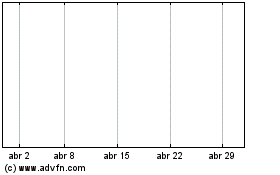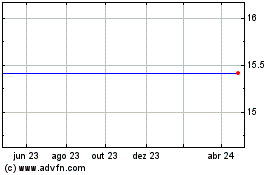By Nick Kostov and Ben Dummett
This article is being republished as part of our daily
reproduction of WSJ.com articles that also appeared in the U.S.
print edition of The Wall Street Journal (December 18, 2019).
The boards of Peugeot maker PSA Group and rival Fiat Chrysler
Automobiles NV on Tuesday backed a binding merger agreement that
includes sweeteners to make the trans-Atlantic tie-up more
attractive to U.S. regulators and PSA shareholders, according to
people familiar with the discussions.
The two boards voted to sign a memorandum of understanding,
fixing the financial terms of the deal and the corporate governance
structure of the combined company, the people said.
The move marks an important step in solidifying a merger that
was announced by the two auto makers in October. The tie-up aims to
create a $50 billion auto giant that would rank among the world's
largest car companies by sales.
The deal comes at a time of mounting cost pressures in the
global car business, with auto companies investing billions in new
technologies, such as electric cars, as demand for cars and trucks
in the top auto markets weakens after a period of strong
growth.
Among the new terms added over the past several weeks were
agreements that China's state-run Dongfeng Motor Group Co. would
sell part of its 12.2% stake in PSA back to the French car maker
and that Fiat Chrysler will keep its Comau division at least until
the closing of the deal, the people close to the talks said.
Dongfeng's decision to reduce its stake in PSA is designed to
help the deal gain approval from the Committee on Foreign
Investment in the U.S., which is likely to review the merger
proposal at a time of heightened trade tensions between the U.S.
and China, the people said.
Dongfeng would end up with a roughly 4.5% stake in the newly
combined auto company and won't be entitled to a seat on its board,
they said.
The two sides also have changed the deal so the combined company
entity will retain Fiat Chrysler's Comau division, a maker of
robotics technology used in vehicle manufacturing, rather than spin
it off as previously planned, the people familiar with the matter
said. That would allow PSA and Fiat Chrysler shareholders to
benefit from any sale of the Comau division, the people said.
Jefferies has valued Comau at some EUR250 million.
Both Fiat Chrysler and PSA shareholders must approve the deal
through a vote, likely to occur next fall, those people said.
Once the merger agreement is signed, the two companies will next
need approval from both U.S. and European regulators to move
forward with the tie-up. They will also need the backing of various
banking authorities, since the companies own substantial financing
operations across the globe. Both companies aim to have the merger
completed by the end of 2020.
The original proposal outlined terms in which Fiat Chrysler will
pay a special dividend of EUR5.5 billion to its shareholders. By
comparison, PSA will distribute to its shareholders the company's
46% stake in auto parts supplier Faurecia, which is worth around
EUR3 billion. The value difference raised concerns among PSA
investors that they weren't getting as good a deal as Fiat Chrysler
shareholders.
In vetting the merger proposal, PSA lawyers reviewed a recent
civil lawsuit filed by U.S. rival General Motors Co., accusing Fiat
Chrysler of paying bribes to union officials in the U.S. to win it
a more favorable labor-cost advantage. The attorneys, however,
agreed with Fiat Chrysler's assessment that the lawsuit was
meritless and ultimately decided it wasn't a major hurdle to the
deal, say people close to French car maker.
In reviewing the deal, U.S. regulators would be likely to latch
onto Dongfeng's ownership stake in PSA and its board seat as a red
flag, especially given the Trump administration's focus on the auto
industry and Chinese intellectual property theft, said John
Kabealo, a lawyer whose practice focuses on business-related
national security issues.
"That would trigger significant concerns," Mr. Kabealo said.
The Treasury Department, which handles press inquiries for the
Committee on Foreign Investment in the U.S., declined to comment,
saying it doesn't provide information on specific merger reviews or
whether a company has filed for one, a spokeswoman said.
If completed, the merger will create the world's fourth-largest
auto maker, uniting the owner of brands such as Dodge, Ram, Jeep
and Alfa Romeo with a stable of brands that includes Peugeot,
Citroën, Opel and Vauxhall. The new company will produce almost as
many cars in Europe as Volkswagen AG, the continent's largest car
maker, and will have a large presence in the U.S. and South
America.
More than 50 people across the two companies have been working
on the merger project since PSA and Fiat Chrysler announced their
deal several weeks ago. The negotiation process has been overseen
by Doug Ostermann, Fiat Chrysler's group treasurer and global head
of business development, and Olivier Bourges, PSA's executive vice
president for program and strategy groups.
The two car makers previously said that John Elkann, Fiat
Chrysler's chairman, will become chairman of the newly merged
company, while PSA Chief Executive Carlos Tavares will be CEO with
an initial five-year term.
Ben Foldy contributed to this article.
Write to Nick Kostov at Nick.Kostov@wsj.com and Ben Dummett at
ben.dummett@wsj.com
(END) Dow Jones Newswires
December 18, 2019 02:47 ET (07:47 GMT)
Copyright (c) 2019 Dow Jones & Company, Inc.
Stellantis NV (BIT:STLA)
Gráfico Histórico do Ativo
De Mar 2024 até Abr 2024

Stellantis NV (BIT:STLA)
Gráfico Histórico do Ativo
De Abr 2023 até Abr 2024
